50+
SME Partners
EU
Wide Reach
Our Mission
AIMII is an initiative of European digital SMEs linking fair digital markets with AI innovation through trust, dialogue, and practical solutions among SMEs, gatekeepers, governments, and the European Commission.
Regulatory Clarity
Ensure DMA and AI Act support SME growth and innovation.
Trust as a foundation
Create collaborative dialogue between SMEs, gatekeepers, and regulations.
Fair Competition
To enable fair framework conditions for gatekeepers.
Challenge & Opportunity
From market challenges to regulatory opportunities ‒ shaping the future of digital innovation
Gatekeeper Dominance
Platforms like Google control 90%+ of search, limiting SME market access and creating unfair dependencies.
AI Integration Risks
AI Overviews reduce third-party content visibility by 34.5%, threatening SME digital presence.
DMA Protection
Prevents gatekeeper self-preferencing and ensures fair market conditions for European SMEs.
AI Act Support
Regulatory sandboxes and reduced fees enable SME AI development and innovation.
What We Do
Monitor & Assess
Track the implementation of the DMA and AI Act, focusing on their impact on SME competitiveness and innovation.
Facilitate Engagement
Organize roundtables, workshops, and direct dialogues between SMEs, regulators, and gatekeepers.
Promote Solutions
Advocate for clear, predictable, and balanced rules that enable SMEs to grow, innovate, and compete fairly.
Why This Matters
Insights from European SME leaders
"Part of running a successful business is not only to anticipate and understand market dynamics, but also to identify opportunities and know how to harness them. This requires more than observation — it calls for active engagement."
"AIMII provides the voice that European SMEs need in the complex landscape of digital regulation. Without fair market access, even the best AI innovations may not reach users."
"The synergy between DMA and AI Act is crucial. Fair market access is foundational for SMEs to benefit from AI Act opportunities and compete with tech giants."
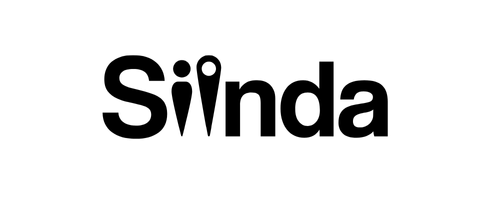
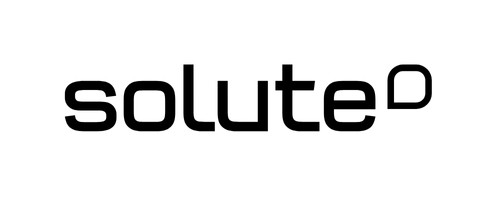

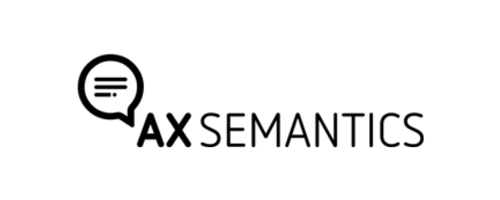

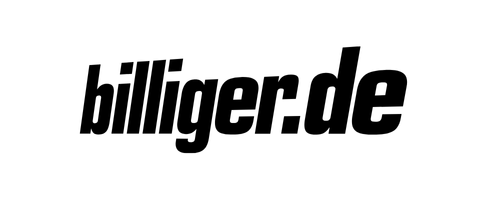
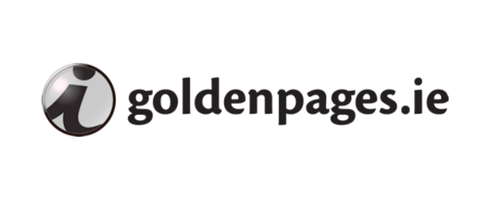
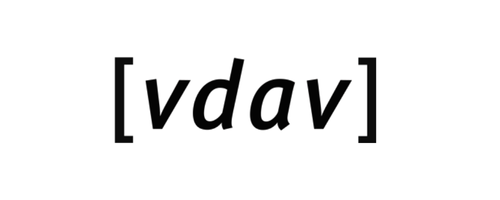




Get Involved with AI MII
Are you a European SME facing challenges in digital markets or AI compliance? Join AIMII and help shape a fairer, more innovative digital ecosystem.
DMA
Digital Markets Act
AI Act
European AI Regulation
SMEs
Our Focus
Q&A
More Details can be found on the EU's offical DMA page.
More informations are available on the official AI Act Website.
The European Commission is the executive body of the European Union, responsible for proposing new legislation, enforcing EU laws, managing the EU budget, and representing the Union internationally. Composed of 27 Commissioners, one from each member state and led by a President. It acts as the EU’s main policy-driving institution. It prepares legal proposals for the European Parliament and Council to consider, ensures member states comply with EU rules, and oversees the implementation of policies across a wide range of areas through its administrative departments based in Brussels.
In the European Commission, Cabinets and Directorates-General (DGs) serve distinct but complementary roles. Cabinets are small teams of political advisors who work directly with each Commissioner. In contrast, DGs are large, permanent administrative departments staffed by civil servants responsible for detailed policy work, including drafting legislation and implementing EU programs in specific areas like competition, environment, or trade. While Cabinets provide political guidance and reflect the priorities in the Commissioner’s agenda, DGs carry out the technical and operational tasks needed to turn that agenda into concrete action.
DG COMP, short for Directorate-General for Competition, is the department of the European Commission responsible for drafting and enforcing EU competition law. Its main role is to ensure that companies compete fairly and freely within the EU’s single market, to the benefit of consumers, businesses, and the economy. Together with DG CNECT it is responsible for the Digital Markets Act (DMA) enforcement.
DG CONNECT stands for the Directorate-General for Communications Networks, Content and Technology. It is a department of the European Commission, responsible for developing and implementing policies related to the digital economy and society in the European Union. This DG is also responsible for the DMA, the AI Act and parts of the EU data legislation.
The DMA is an EU regulation designed to ensure fair competition and contestability in the digital economy by targeting large online platforms known as “designated gatekeepers.”
The DMA sets out a list of do’s and dont’s for gatekeepers. For example, they must allow business users to access data they generate and avoid self-preferencing their own services over competitors. The goal is to prevent unfair practices before they harm competition, rather than punishing them afterward as in traditional antitrust enforcement. Non-compliance can lead to hefty fines of up to 10% of a company’s global annual turnover, or even more for repeated violations.
The difference between the DMA and the DSA is that the
first one focuses on ensuring fair competition in digital markets to prevent
anti-competitive practices, while the second one aims to create a safer and
more transparent online environment by regulating how digital services handle
illegal content, protect users' rights, and manage systemic risks.
What is Article 5(2) of the DMA?
Article 5(2) of the DMA
places restrictions on how "gatekeepers" (large digital platforms)
can use personal data. Specifically, it prohibits them from processing personal
data of users of third-party services that utilize their core platform services
for online advertising purposes, and from combining personal data from
different services, including those offered by the gatekeeper itself or by
third parties, without explicit user consent.
What is Article 6(5) of the DMA?
Article 6(5) of the DMA
prohibits gatekeepers from self-preferencing their own services or products in
ranking, crawling, and indexing within their core platform services. This means
gatekeepers cannot favor their own offerings over those of third-party providers
when presenting search results, or in other platform functionalities.
What is Article 6(9) of the DMA?
Article 6(9) of the DMA
mandates that gatekeepers must provide end users and authorized third parties
with effective, continuous, and real-time data portability of both personal and
non-personal data that has been provided or generated through the use of their
core platform services.This essentially means gatekeepers must allow users to
easily move their data to other services.
When will the DMA be revised?
The Commission is required to conduct a
review of the DMA by 3 May 2026, and subsequently every three years. The
resulting report shall be presented to the European Parliament, the Council and
the European Economic and Social Committee.
What will the revision of the DMA entail?
On 3 July 2025, the
Commission launched a public consultation on the first review of the Digital
Markets Act (DMA). The Commission seeks feedback from any interested parties,
including EU citizens, small and medium-sized enterprises, business organisations,
and other stakeholders, on the impact and effectiveness of the DMA and its
readiness to face emerging challenges, such
as the rollout of AI-powered services. On the basis of the input received,
the Commission will prepare a review report assessing the impact of the DMA so
far.
Interested parties have until 24 September 2025 to submit their views.
Gatekeepers are large digital platforms that control access to essential online services like app stores, search engines, or marketplaces. These platforms act as intermediaries between businesses and users and can set the rules for digital ecosystems. The goal is to rebalance digital markets and curb the dominance of Big Tech in the EU.
Alphabet - Google Search, Google Maps, Google Play, YouTube, Android, Chrome, Google Ads
Amazon - Amazon Marketplace, Amazon Ads
Apple - App Store, iOS, Safari
ByteDance - TikTok
Meta - Facebook, Instagram, WhatsApp, Messenger, Meta Ads
Microsoft - Windows OS, LinkedIn, Microsoft Ads
Booking - Booking.com
Under the DMA, gatekeepers are designated by the European Commission based on specific quantitative thresholds and an assessment of their market power. The criteria are that the company has an annual EU turnover ≥ €7.5 billion in each of the last three financial years, or a market valuation ≥ €75 billion, and provides at least one core platform service in at least three EU countries (e.g. app store, search engine, social network, web browser, OS, cloud service, etc.). This core platform service has at least 45 million monthly active end-users and 10,000 yearly active business users in the EU over the last three consecutive financial years.
Gatekeepers can also be qualitatively designated following a series of criteria such as size, including turnover and market cap operations and position undertaking number of business users and end users, network effects and data-driven advantages, scale and scope effects, business or end user lock-in, including switching costs and behavioural biases, lack of multi-homing, conglomerate structure or vertical integration, other structural business characteristics
If a gatekeeper fails to comply with its obligations under the Digital Markets Act (DMA), the European Commission can impose fines of up to 10% of the gatekeeper’s total worldwide annual turnover for a single infringement. To ensure ongoing compliance, the Commission can impose periodic penalty payments (daily fines) of up to 5% of the average daily worldwide turnover until the gatekeeper remedies the violation. In cases of repeated or serious infringements, the Commission can require structural remedies, such as divestitures or changes in business models, to restore fair competition. Finally, the Commission can issue binding orders requiring the gatekeeper to stop or change specific practices that violate the DMA.
The AI Act is the European Union’s first comprehensive law to regulate artificial intelligence (AI). Formally titled the Artificial Intelligence Act, it was adopted in 2024 and will enter into force in stages starting in 2025, with full applicability by 2026. It introduces a risk-based framework, categorizing AI systems as unacceptable, high, limited, or minimal risk, with corresponding legal obligations. The Act also introduces rules for general-purpose AI models, including foundation models, with heightened responsibilities for the most powerful systems. Enforcement will be coordinated by a new European AI Office, and violations can result in substantial fines.
The AI Act includes specific safeguards to protect and support SMEs, aiming to balance innovation with regulatory compliance. It provides lighter administrative burdens, simplified procedures, and access to regulatory sandboxes, where SMEs can test AI systems with guidance from authorities. The Act also requires EU Member States to offer technical and financial support, including templates, affordable conformity assessments, and training. SMEs developing AI for internal use may face fewer obligations, and their liability exposure is reduced if they act in good faith and engage with regulators. These measures ensure SMEs can innovate responsibly without being overwhelmed by compliance costs.
The biggest issues for SMEs under the AI Act are the high compliance costs, legal complexity, and uncertainty about how the rules apply to their AI systems. Many SMEs lack the resources and expertise to meet the detailed requirements for high-risk AI, such as documentation, risk management, and conformity assessments. Access to regulatory sand boxes is limited and uneven, and tight implementation timelines leave little room to adapt. These challenges may put SMEs at a competitive disadvantage compared to larger firms, potentially discouraging AI innovation unless further support and clarity are provided.